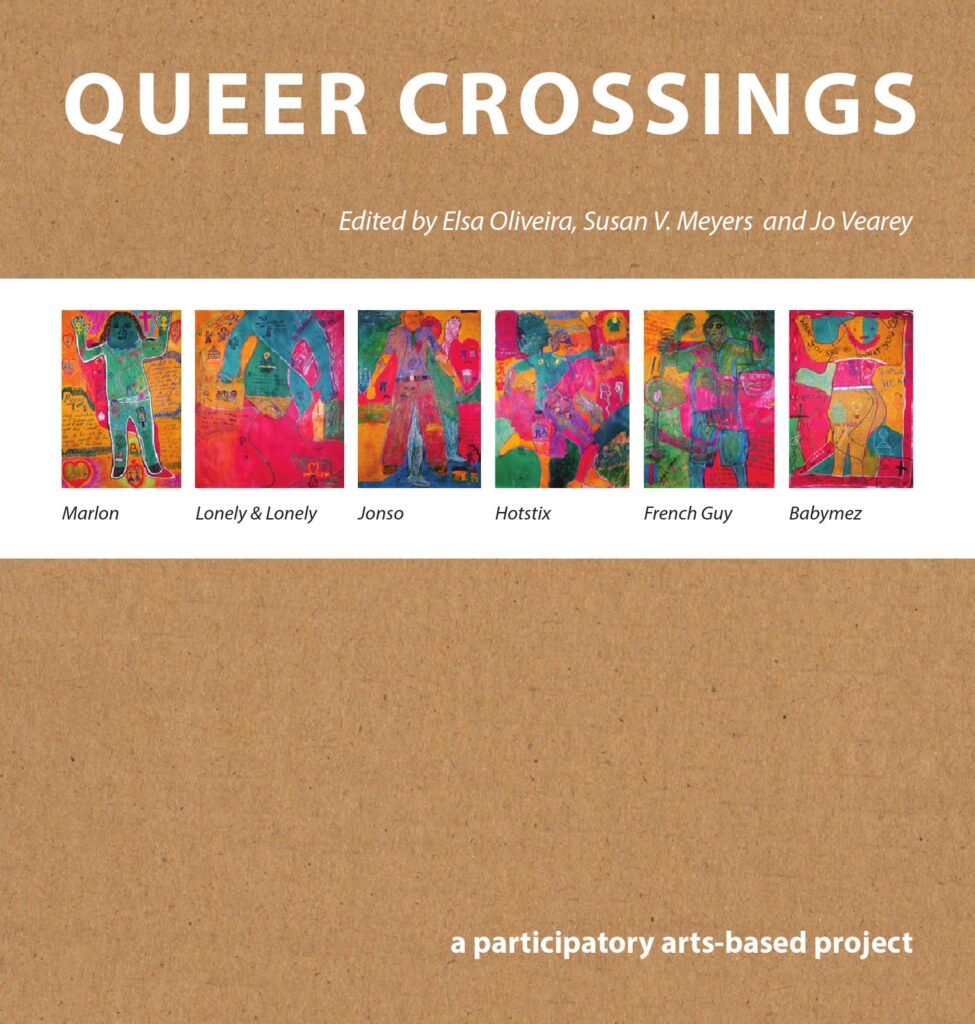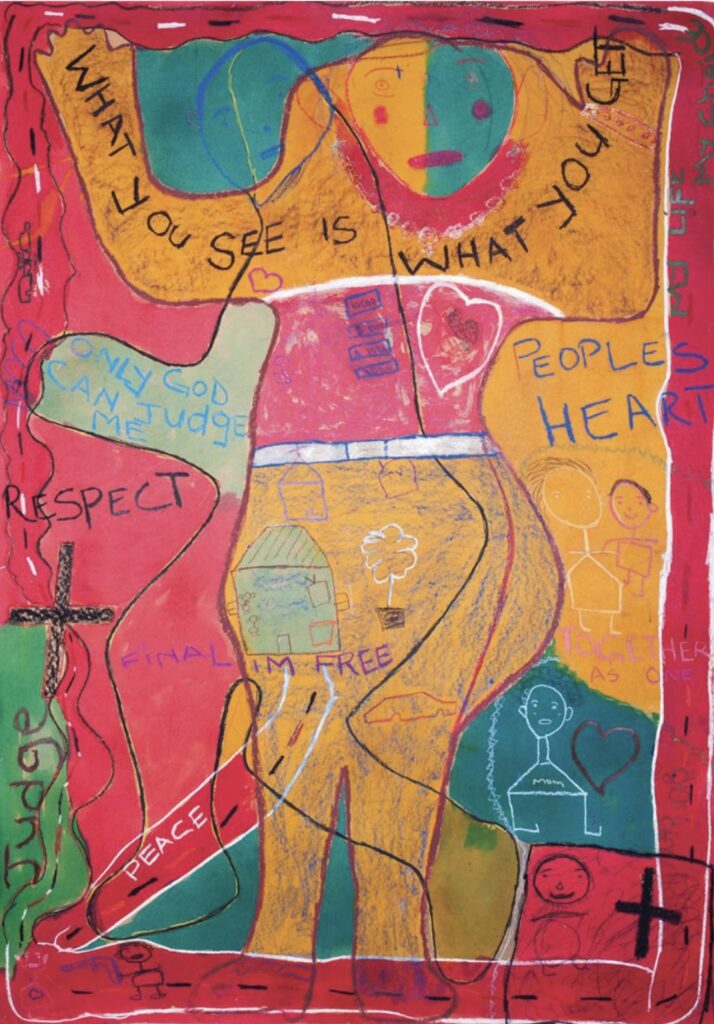“I had to be free to love, to hold hands, to embrace. I could no longer live inside a shell. So, I made my decision to move away from Zimbabwe – my home. Everything I had known, my whole life, I had to leave behind – my home, my family, my roots – on a quest to find freedom.”
Marlon, Queer Crossings p. 53
The Project
Queer Crossings is an anthology project that centers the experience of South-South queer migration through providing eleven LGBTQ migrants/asylum seekers in South Africa the opportunity to share their stories through various forms of expression consisting of poetry, visual art, and short non-fiction pieces. These works were created through two participatory projects that were held in collaboration by Gay and Lesbian Memory in Action (GALA), the African Centre for Migration and Society (ACMS), Seattle University, and SUNY Downstate Medical Center School of Public Health. These participatory projects occurred in 2014 and 2015 and were held at the University of the Witwatersrand, which is a public university located in Johannesburg, South Africa. The Queer Crossings project is a part of a wider project called Method;Visual;Explore, or MoVE, which is based in southern Africa and housed at the ACMS. MoVE utilizes arts-based approaches (visual and other) to “…research the lived experiences of migrants in southern Africa.”

What It Means for Queer Migration in the Global South
This project exemplifies the diversity of experiences and backgrounds of queer migrants who move within the Global South in search of a safer and more accepting living experience. Even through all of the struggles, heartache, and danger that can come with queer migration in the Global South, it can also provides these migrants with the chance of a fresh start in a new country. However, Queer Crossings also draws attention to the unfortunate reality faced by queer migrants – once they reach their destination, they may still face continued victimization, discrimination, lack of safety, and more due to their sexuality/gender identity.

“The works in this anthology powerfully convey the experiences of LGBTQ migrants and asylum seekers who had hoped that Johannesburg would be a safe haven and instead have met serious challenges in terms of safety and access to services.”
Anthony Manion, Queer Crossings p. 11
By participating in Queer Crossings, the eleven individuals worked to bring awareness to both the triumphs and struggles that are inherent to queer migration. Their stories also encourage further study of the topic, as well as – perhaps most importantly – further activism. Through their experiences, we are able to better understand queer migration within the Global South, as well gain insight into the issues that need to be addressed in order to improve the lives of queer migrants.
